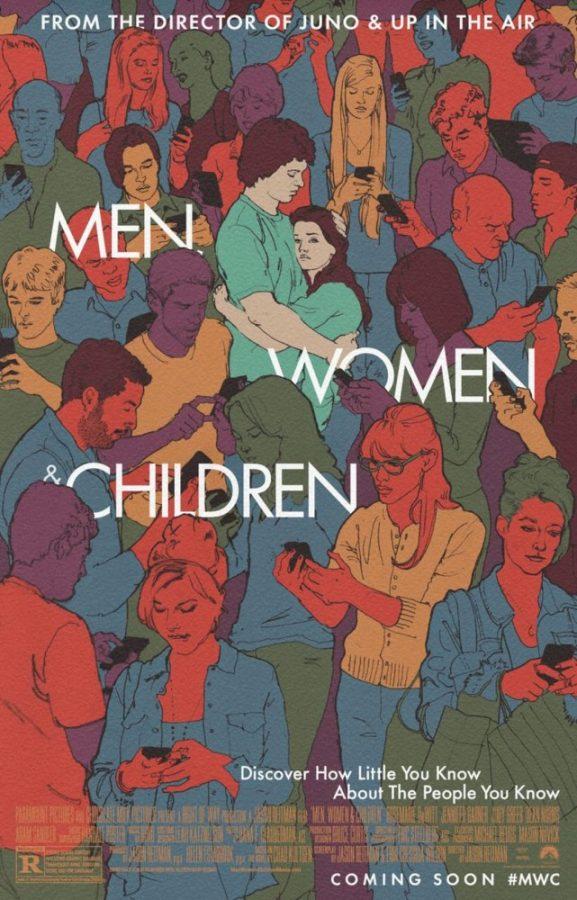I bolted out of my seat as soon as the credits of “Men, Women & Children” started to roll; I couldn’t get out of the theater soon enough. I was so angry that I could spit. I was angry the film had wasted two hours of my time, and it had the gall to believe that it was saying something eye-opening and worthwhile about the ubiquity of technology in everyday life.
Of all things, the film opens with Emma Thompson narrating over images of the Voyager space probe traveling through space. Thompson tells the audience Voyager is an ark, containing the most representative sights and sounds of Earth for extraterrestrials that come across it. This is technology as it was intended, a universal mode of communication to foster positive relations between others.
Without missing a beat, we are on Earth with Thompson telling us that Don Truby (Adam Sandler) has been forced to watch online pornography on his teenage son’s computer because his own computer is too infested with porn-site malware.
The rest of the characters in this unwieldy ensemble of a cast are introduced in this same way, with Thompson instructing us what they’re thinking and in what way technology has screwed them up. These introductions are emblematic of the film’s insistence on hitting things on the head.
The caricatured laundry list of parent-and-child couplings include: Don and Helen Truby (Rosemarie DeWitt), a husband and wife whose sex life and marriage are both virtually nonexistent; Chris Truby (Travis Tope), their son, whose obsession with online pornography has rendered him unable to be aroused by normal means; Joan Clint (Judy Greer), who sells provocative photos of her underage daughter Hannah Clint through a “modeling” website; Patricia Beltmeyer (Jennifer Garner), who tracks and scans the phone and computer used by her daughter Brandy Beltmeyer (Kaitlyn Dever); Allison Doss (Elena Kampouris), who visits blogs that encourage eating disorders; Tim Mooney (Ansel Elgort), a previous high school star running back who has taken up online gaming to fill the void of his distant father, Kent Mooney (Dean Norris).
That unnecessarily lengthy description sums it up succinctly. By my count, the film must juggle 10 characters and it doesn’t do so effectively. It drops some of them, only to pick them back up once they’ve been forgotten about.
“Men, Women & Children” is too tone deaf to realize that the minutia and subtleties abounding in our modern day-to-day life are the real stories. Affairs and marriages falling apart are a dime a dozen in movies; the only way this story tells it differently is that the husband and wife use the Internet to facilitate their cheating. However, a husband and wife sitting in bed, opting to play “Words With Friends” with each other instead of holding a conversation, is a powerful image unique to this time and place. It’s only given half of a minute of screen time.
I am not so much concerned with a girl’s bulimia, something addressed time and time again, as I am with her texting nasty things to her best friend about the school floozy they’re both having a conversation with directly in front of them.
The dynamic between how much personal space a parent allows their kid has changed with the advent of perpetual communication, yet the film addresses this by making the mom so obsessive and over the top with policing her daughter that her character almost has no basis in reality.
I firmly believe there’s something to be said about this generation, about the frustrations of trying to connect — no pun intended — with another person on an emotional, intimate level with the abundance of communication technologies. I’ve certainly experienced them, as I’m sure many others have. There is something to be said, but “Men, Women & Children” lacks the tact and insight to muster anything other than shouting the insultingly obvious.
It’s a privilege to be able to tell a story on the big screen for millions to see, and the filmmakers here grossly misused this privilege.
Grade: D-
_______________
Follow Alex Guyton on Twitter.









